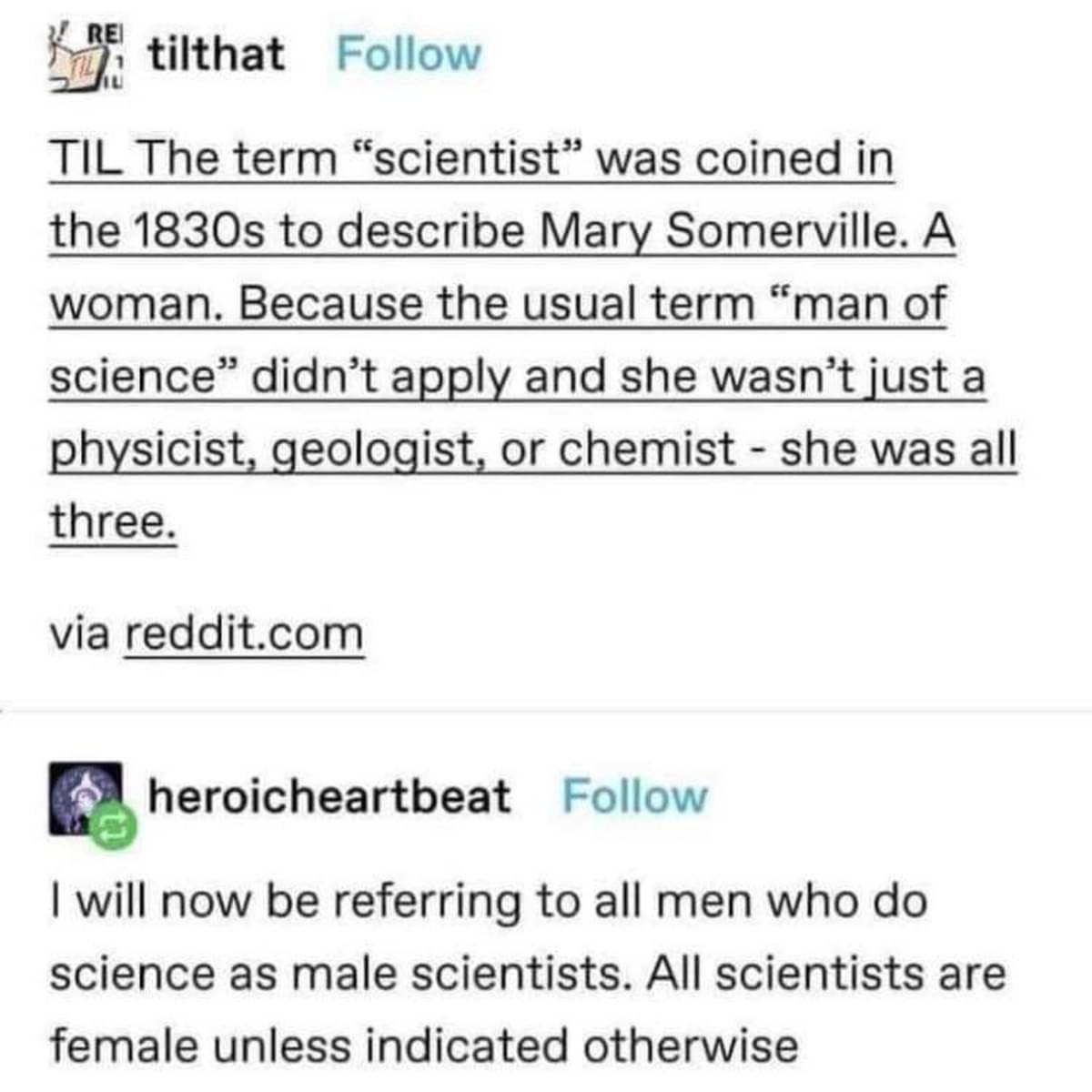this post was submitted on 17 May 2024
462 points (100.0% liked)
Science Memes
236 readers
31 users here now
Welcome to c/science_memes @ Mander.xyz!
A place for majestic STEMLORD peacocking, as well as memes about the realities of working in a lab.

Rules
- Don't throw mud. Behave like an intellectual and remember the human.
- Keep it rooted (on topic).
- No spam.
- Infographics welcome, get schooled.
This is a science community. We use the Dawkins definition of meme.
Research Committee
Other Mander Communities
Science and Research
Biology and Life Sciences
- !abiogenesis@mander.xyz
- !animal-behavior@mander.xyz
- !anthropology@mander.xyz
- !arachnology@mander.xyz
- !balconygardening@slrpnk.net
- !biodiversity@mander.xyz
- !biology@mander.xyz
- !biophysics@mander.xyz
- !botany@mander.xyz
- !ecology@mander.xyz
- !entomology@mander.xyz
- !fermentation@mander.xyz
- !herpetology@mander.xyz
- !houseplants@mander.xyz
- !medicine@mander.xyz
- !microscopy@mander.xyz
- !mycology@mander.xyz
- !nudibranchs@mander.xyz
- !nutrition@mander.xyz
- !palaeoecology@mander.xyz
- !palaeontology@mander.xyz
- !photosynthesis@mander.xyz
- !plantid@mander.xyz
- !plants@mander.xyz
- !reptiles and amphibians@mander.xyz
Physical Sciences
- !astronomy@mander.xyz
- !chemistry@mander.xyz
- !earthscience@mander.xyz
- !geography@mander.xyz
- !geospatial@mander.xyz
- !nuclear@mander.xyz
- !physics@mander.xyz
- !quantum-computing@mander.xyz
- !spectroscopy@mander.xyz
Humanities and Social Sciences
Practical and Applied Sciences
- !exercise-and sports-science@mander.xyz
- !gardening@mander.xyz
- !self sufficiency@mander.xyz
- !soilscience@slrpnk.net
- !terrariums@mander.xyz
- !timelapse@mander.xyz
Memes
Miscellaneous
founded 2 years ago
MODERATORS
you are viewing a single comment's thread
view the rest of the comments
view the rest of the comments

I thought it was him, William Whewell, in response to an almost rant from Samuel Taylor Coleridge about "natural philosophers" (today's scientists) not deserving to be called "philosophers".
I just googled it and found:
Yeah, that was the story I'd heard.
Another source says:
It's funny because nobody remembers S. T. Coleridge as a philosopher but only as a poet. I've read that his philosophical writings were like an eccentric and almost immature version of German idealism. The thing that haunts me is that famous F. Schelling is well read but often misunderstood, so if they both were part of the romantic movement and they were both close to idealism, it could be that they both suffer the same fate.
Anyway, I digressed. That was the story I knew. Basically, a gatekeeping poet separated philosophers and natural philosophers.
It's even curious because there are rumours about men like Coleridge being "half-mad", and recently there have been studies on it. It would be ridiculous (just as history tends to be) if an old mad poet had divided these branches of knowledge on a fit of bad moods.